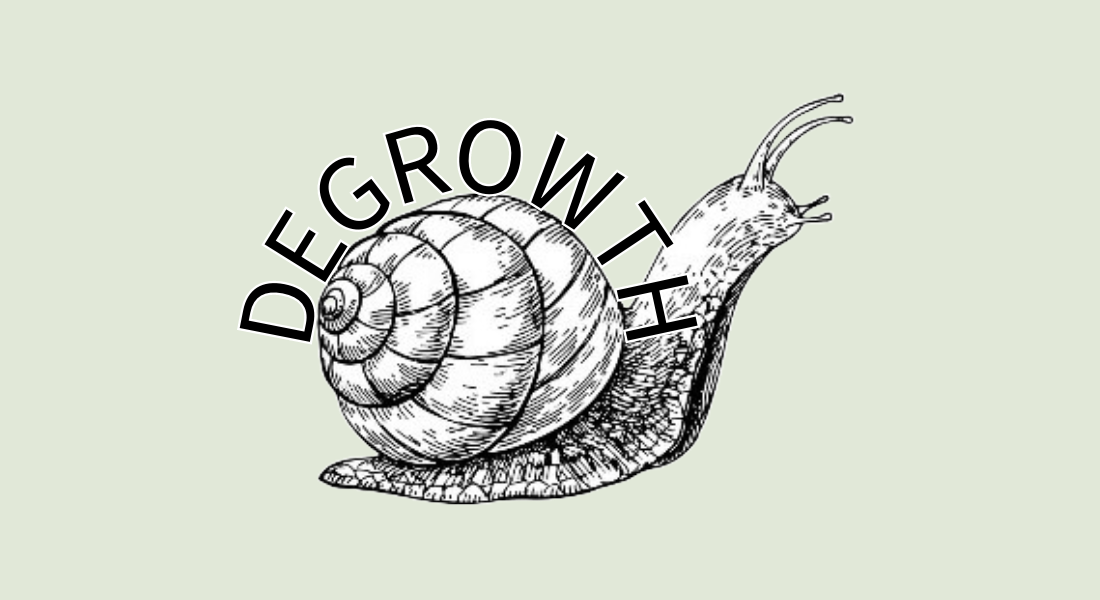
Degrowth and socioecological justice across disciplines: a reading and discussion-based PhD course
Date and time:
Starting date: Wednesday, January 17th, 2024, 13:00-16:00 - One session each Wednesday afternoon to follow; 8 sessions total
Description
We face today a host of interlinked crises: climate breakdown, biodiversity collapse, increasing public health challenges and rising inequality. Substantial research has demonstrated the links between growth-oriented economic thinking and the production of such crises. But how do we translate such knowledge into action? How do we transition toward more socio-ecological just futures? To contribute to addressing these crises, it is crucial that students are able to grasp contextual and systemic complexities and that they are able to communicate and argue across disciplines. In this discussion-based course, we will focus on different dimensions of the multiple crises, and on the degrowth and postgrowth approaches to tackle them. We begin with a primer into degrowth thinking covering key terms & principles, as well as common misunderstandings. Then then turn to focus on a range of topics that present paths to socio-ecological justice, including cultural transformation, extractivism in the Global South, global health and inequality, food security, democratic paths to degrowth and the role of academia, to name a few. Faculty members from each of the six faculties at UCPH will host different sessions. The approaches to tackle the interconnected crises we face require collaboration with civil society actors, and so, in each session, we will also host a civil-society actor who will provide an “on-the-ground” perspective on the discussion topic, along with the respective faculty member.
Learning outcomes
Knowledge:
A student who has met the objectives of the course will be able to
- Understand how the climate and biodiversity crises interact with global well-being
- Understand the interfaces between academic work and civil-society actors, including how the two can jointly contribute to solving the above-mentioned global challenges
Skills:
A student who has met the objectives of the course will be able to
- Explain how the growth paradigm has shaped public discourses in the past and why it is being challenged today
- Be able to engage in debate about the role of growth in academia, institutions and society as a whole
Competencies:
A student who has met the objectives of the course will be able to
- Competently discuss complex, interrelated issues on degrowth, postgrowth and alternative economic principles - as applied to politics, economics, medicine, and more
Course form and activities
To cover a wide range of academic fields and knowledge, all six faculties of UCPH are represented in this reading and discussion-based course. Each UCPH lecturer selects readings on how academic knowledge can be translated into action in responses to the challenges we currently face. The lecturer will facilitate the session, and the course participants will have read and reflected on the paper beforehand. In addition to an academic host, there will be a civil-society actor of relevance in each session. Each UCPH lecturer and each civil society actor prepare key questions for the readings, which the students have thought about/prepared answers to for beforehand. By having an academic host and a civil-society actor in each session, we are going beyond a purely academic discussion and asking what we can do to transition toward more socio-ecological just futures.
ETCS credits: 2,5
Registrations is closed
Teachers:
- Dr. Rebecca Leigh Rutt, Associate Professor, Department of Food and Resource Economics (SCIENCE)
- Dr. Fernando Racimo, Associate Professor, Globe Institute (SUND)
- Dr. Peter Furu, Associate Professor, Department of Public Health (SUND)
- Dr. Jens Friis Lund, Professor, Department of Food and Resource Economics (SCIENCE)
- Dr. Anne-Sofie Dichman, PostDoc, Department of Political Science (SAMF)
- Dr. Linnéa Nordlander, Assistant Professor, Center for International Law and Governance (JUR)
- Dr. Stefan Gaardsmand, Associate Professor, Department of Cross-Cultural and Regional Studies (HUM)
- Dr. Stig Eduard Breitenstein Jensen, Associate Professor, Associate Professor, Centre for African Studies (TEO)
Course Organisers:
- Dr. Rebecca Leigh Rutt, Associate Professor, Department of Food and Resource Economics (SCIENCE)
- Dr. Fernando Racimo, Associate Professor, Globe Institute (SUND)
The course is organised by the GSC thematic solution Degrowth.
Eligibility
The course will be open to 24 participants and we aim for representation across all six UPCH Faculties. No qualification is required beyond an interest in the topics and commitment to meaningful participation. Participants are expected to write a brief text (500 words or less) explaining their motivation to join the course and how the topic might come to bear on their academic activities (as far as possible). UCPH PhD candidates receive priority. Seats to PhDs from other Danish universities will be allocated according to applicable rules. PhD candidates have first priority but applications from other (non-PhD) participants will be considered, space pending.
Regular seats: 24
Course fee: NA
Teaching language: English
Exam form: All participants submit a two-page reflection piece summarizing their learning outcomes and the applicability to their future research.
Grading scale: Pass / fail
How to prepare for each session
Before each session, students are expected to:
- read the scientific paper(s) / all materials assigned by the lecturers
- write and submit in advance ½ - 2 page(s) summarizing the paper(s) for the session
- reflect on the questions posed by the lecturer and the civil society actor
Workload
| Activity | |
| Preparatory readings | 40 hours |
| Total course hours/presence | 20 hours |
| Written preparation | 8,75 hours |
| Total |
68.75 hours |
Programme:
Please register here before December 8th, 2023.
